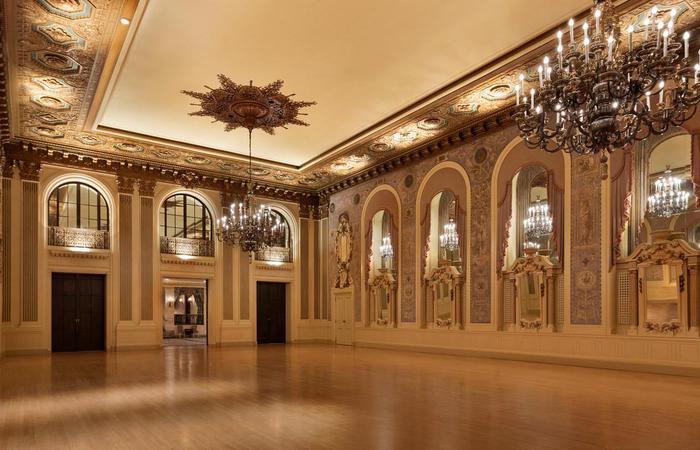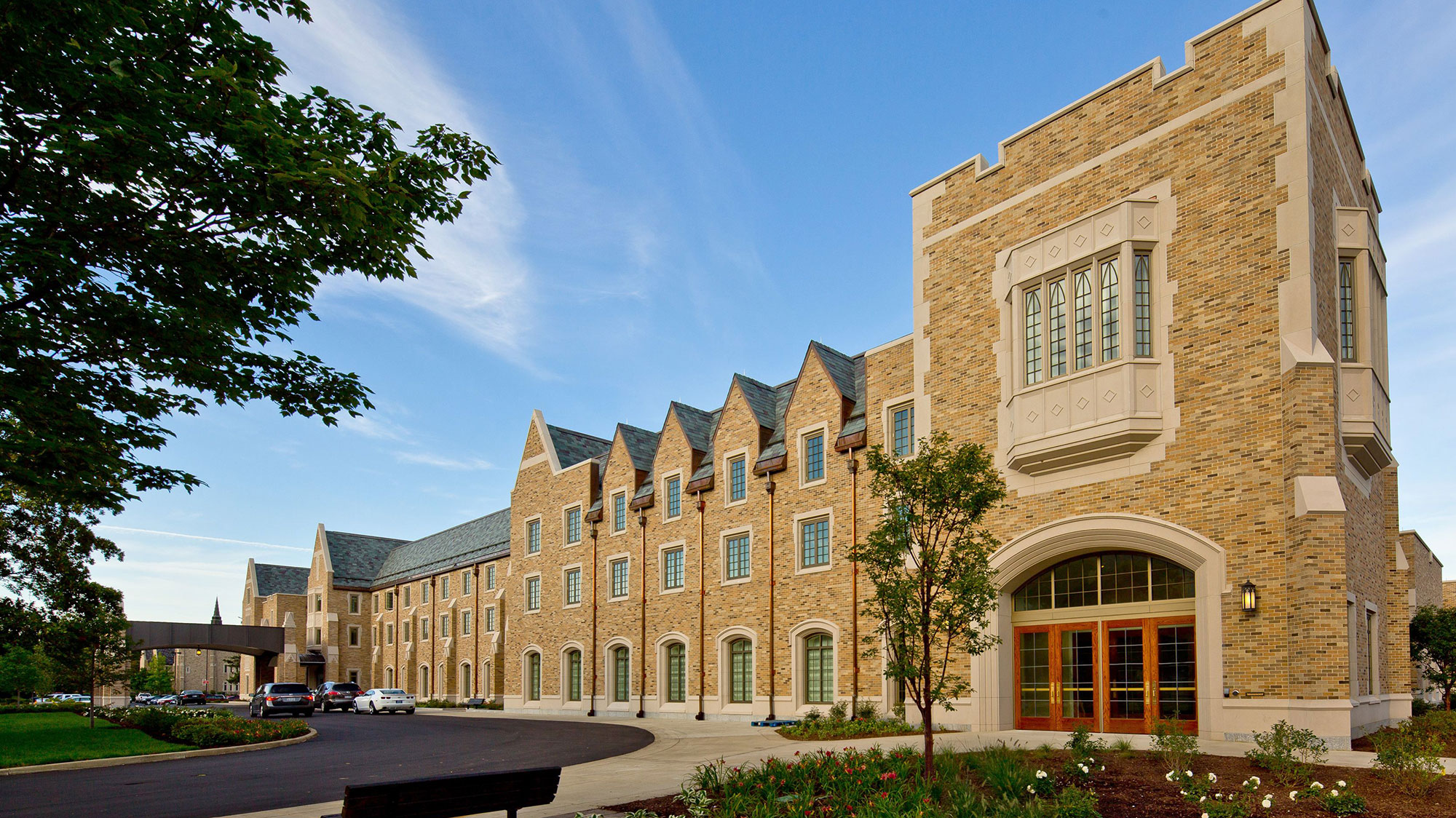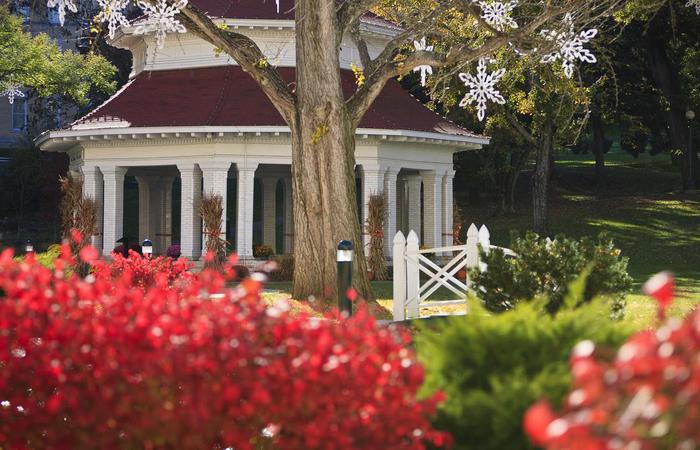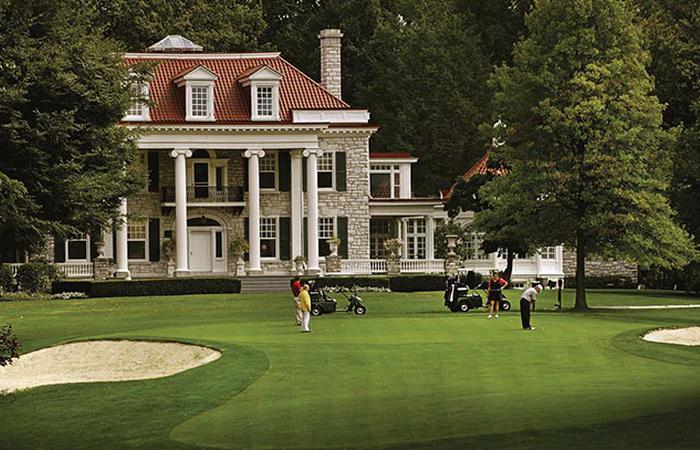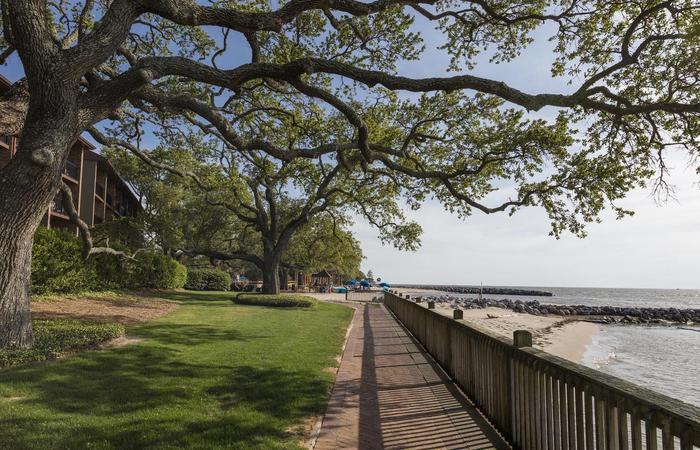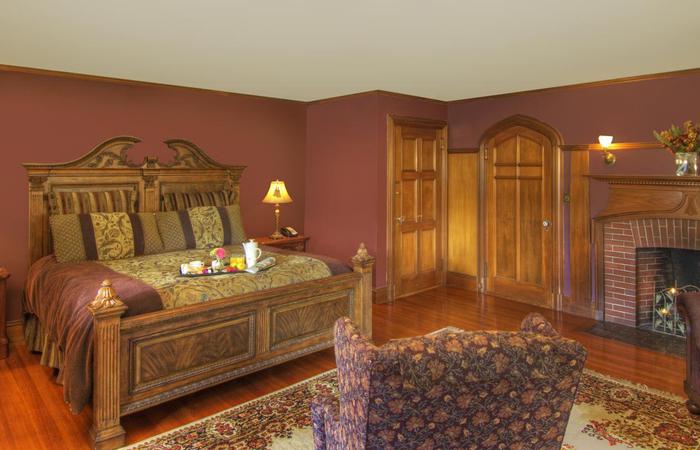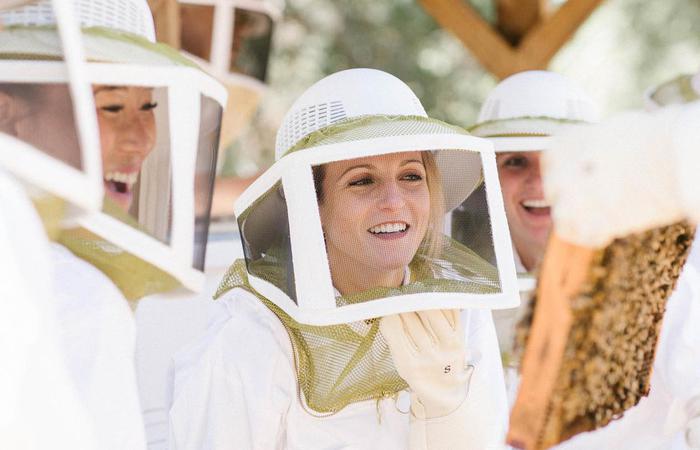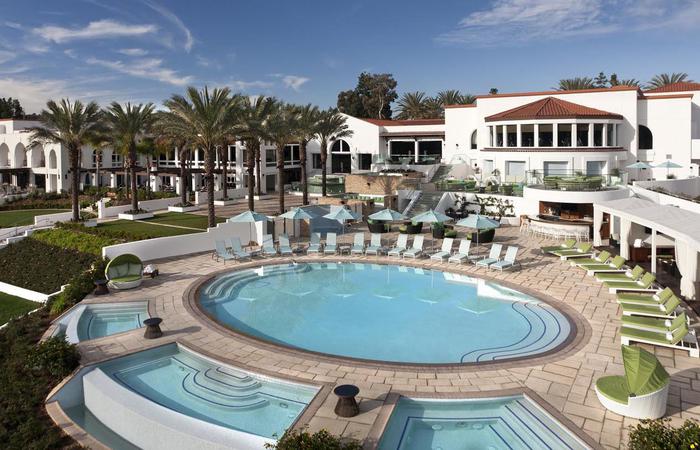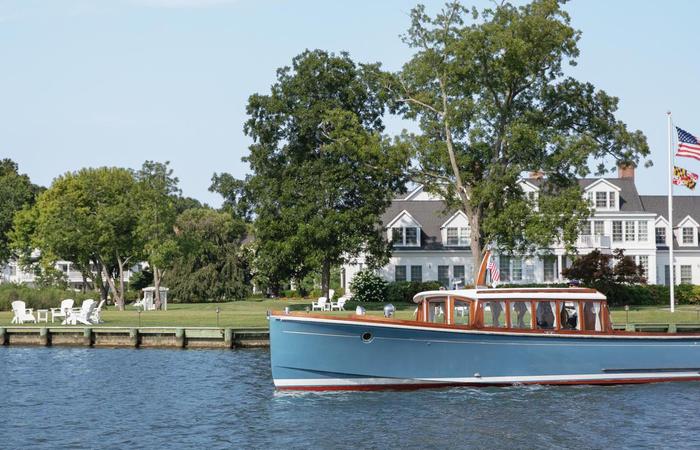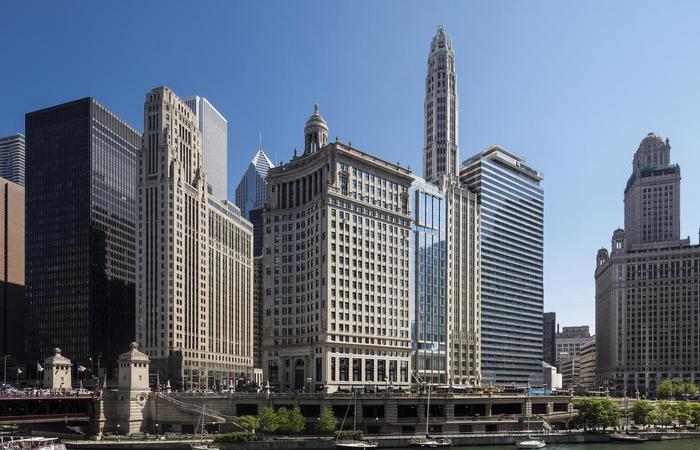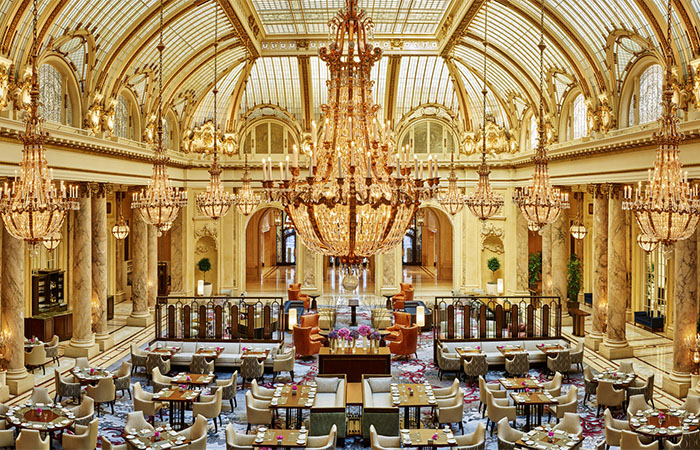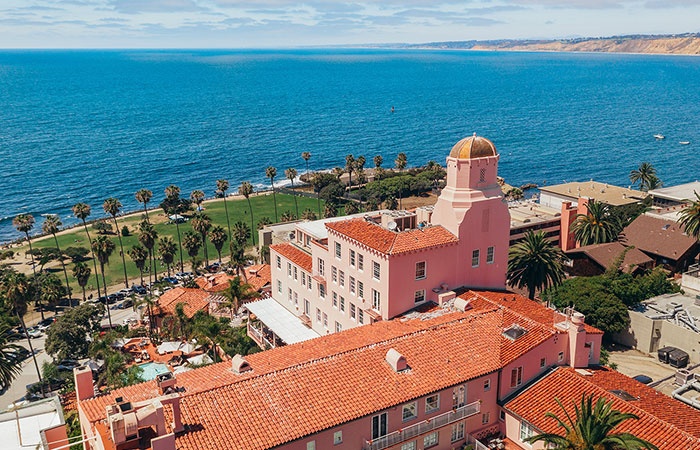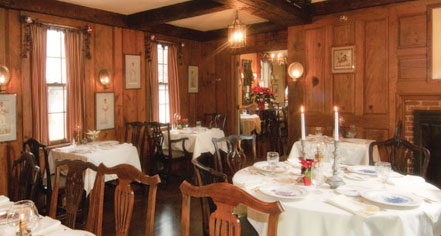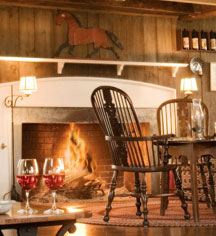Receive for Free - Discover & Explore eNewsletter monthly with advance notice of special offers, packages, and insider savings from 10% - 30% off Best Available Rates at selected hotels.
history
A Home Becomes an Inn
In 1801, Grafton resident Enos Lovell was convinced that people were looking for a place that provided good food and lodging, and converted his two-story private home to an inn. The building still stands as part of The Old Tavern. As Grafton prospered, so did the Inn. By the time it was taken over by Hyman Burgess in 1823, it had doubled in size. However, in the process of doubling the size, the builders failed to match the floor levels which accounts for the slope in the second and third floor corridors.
By 1841, the Inn had become the center of activity for Grafton, so much so that court was held there.
In 1861, with Lincoln as President, the Inn fell on unstable times. Ownership changed eight times. During the Civil War it was operated by William and Sophia Stratton, but not much is known of what transpired in the Grafton Inn during that period. Most of the records were lost when the schoolhouse in which they were stored burned down in 1936.
The Phelps Brothers
In 1886, Francis Phelps bought the Grafton Inn for $1,700 and sold a half interest to his brother Harlan. Harlan caught California gold-rush fever and returned to Grafton with $4,500. He invested every penny in the inn by adding a third floor and the popular porches, making the building look much the same as it does today.
Popular Among The "In" Crowd
While the Grafton Inn was popular among the literary set (Rudyard Kipling was a visitor in 1892) and was the "in" place for local social events, it was still primarily a hotel patronized mostly by commercial travelers who knew it as a "good place to stop." There were notable exceptions. Ulysses S. Grant came to the inn on December 19, 1867, while campaigning for his first term as President. The Tavern has played host to other famous guests: Daniel Webster, Oliver Wendell Holmes, Theodore Roosevelt, Woodrow Wilson and Ralph Waldo Emerson.
Grafton and The Inn Begin to Decline
By 1903, the Phelps brothers died and their widows sold the Grafton Inn to Norman Blodgett who ran it for 27 years. When the Great Depression hit, Blodgett sold the property to Harry and Cecelia Dutton who worked hard to keep it open during that difficult time. In 1937, they sold the inn and a string of owners/innkeepers followed -- The Perry’s, the Dettmer’s, the Wriston’s and the Walkers – all who did their best to keep the Inn going despite the developing motel and hotel chains in the Northeast that were taking over the lodging industry. Some notables during that period: the Dettmer’s acquired the Homestead property and added it to Inn’s facilities, and the Wriston’s built the pool area.
End of an Era?
It seemed the era of the country inn was coming to an end. Guests started to demand modern plumbing, private bathrooms, hot and cold running water and central heating. The Inn, lacking in most of those amenities, went into decline. It could stay open only during the summer months. The cost of "modernizing" was prohibitive. By 1964, the Grafton Inn was in a sad state of repair and was experiencing significant financial challenges. The end was in sight.
Dean Mathey & The Windham Foundation
Dean Mathey was a regular visitor to Grafton and many of his family members owned summer homes in town, much like many of today’s visitors. But he influenced life in Grafton more than any other individual throughout the town's history.
Mathey had a deep passion for Grafton and all it embraced: rural beauty, peacefulness and nature. A man of many talents -- financier, philanthropist and star athlete -- he gave of himself generously in expressing his love for the tiny community.
By having had a longstanding appreciation of historic architecture, Mathey was distressed to see that several fine buildings, the Grafton Inn included, were falling into disrepair. Eventually, he began contributing to certain projects that interested him. And an idea came to fruition. In 1963, the Windham Foundation was created with the purpose of restoring the Village of Grafton and contributing to organizations and programs that benefited Vermont and Vermonters.
The Windham Foundation purchased the Grafton Inn in 1964 and a year later, a major renovation had been completed. The finest modern conveniences were added for guests. A careful hand to preserve the famous country-inn character was maintained.
Mathey’s cousin Mathew Hall was the Foundation’s first president. He and his wife Elizabeth were responsible for many things, including the décor of the inn. Those tasteful choices gave the inn the interior design footprint it currently has today. T
The Grafton Inn Today
Today, the Grafton Inn boasts 45 individually appointed rooms with period antiques, including seven suites with private baths, sitting areas and most with air conditioning. Four rental houses, each sleeping six to 10 people, offer separate living areas, kitchens and baths.
Over the years since 1963, there have been a number of executives to stand at the helm of The Windham Foundation. The current president of the Grafton Inn is Bob Allen. Native Vermonter and Innkeeper has been at the Grafton Inn since May 2013.


